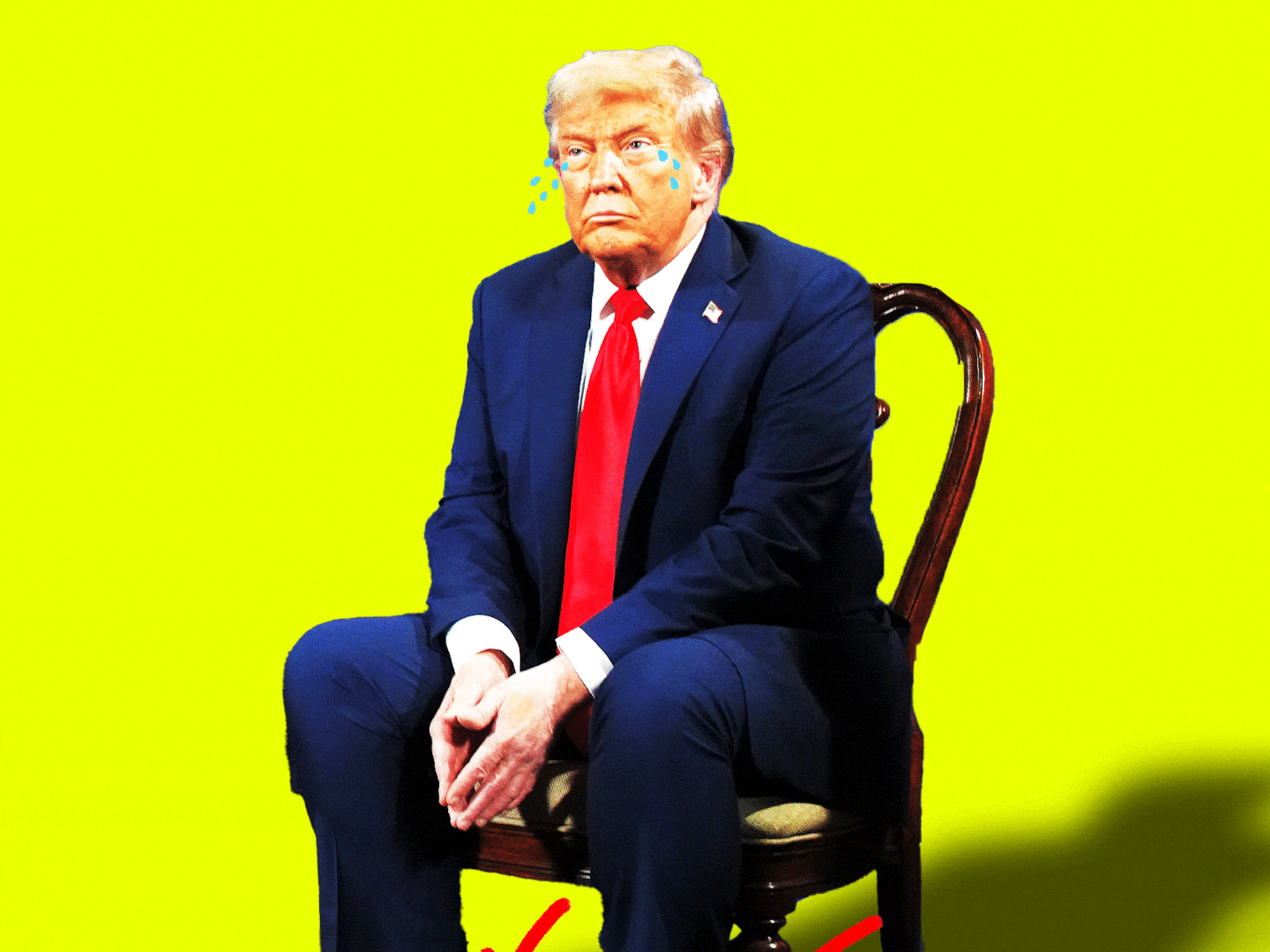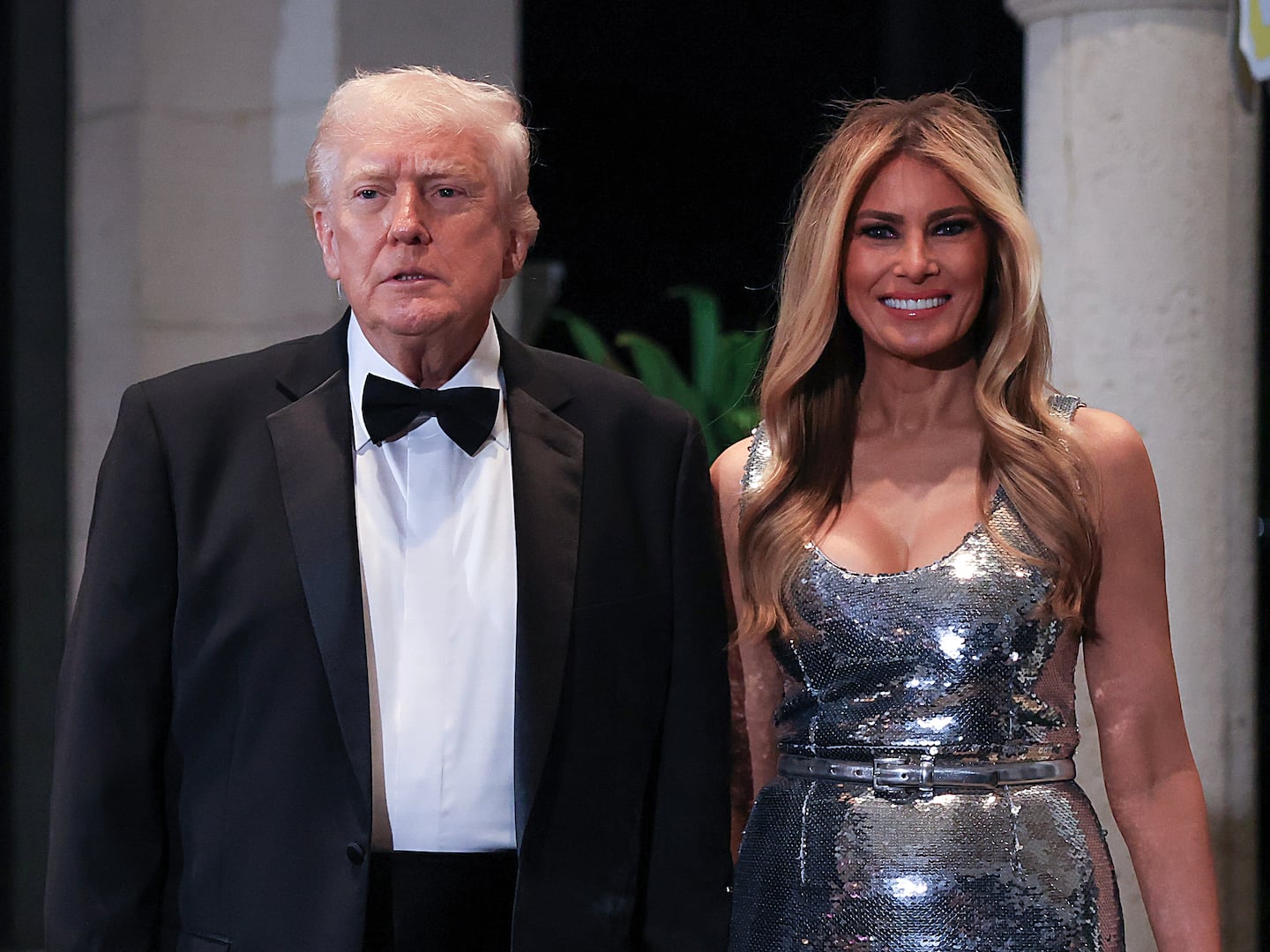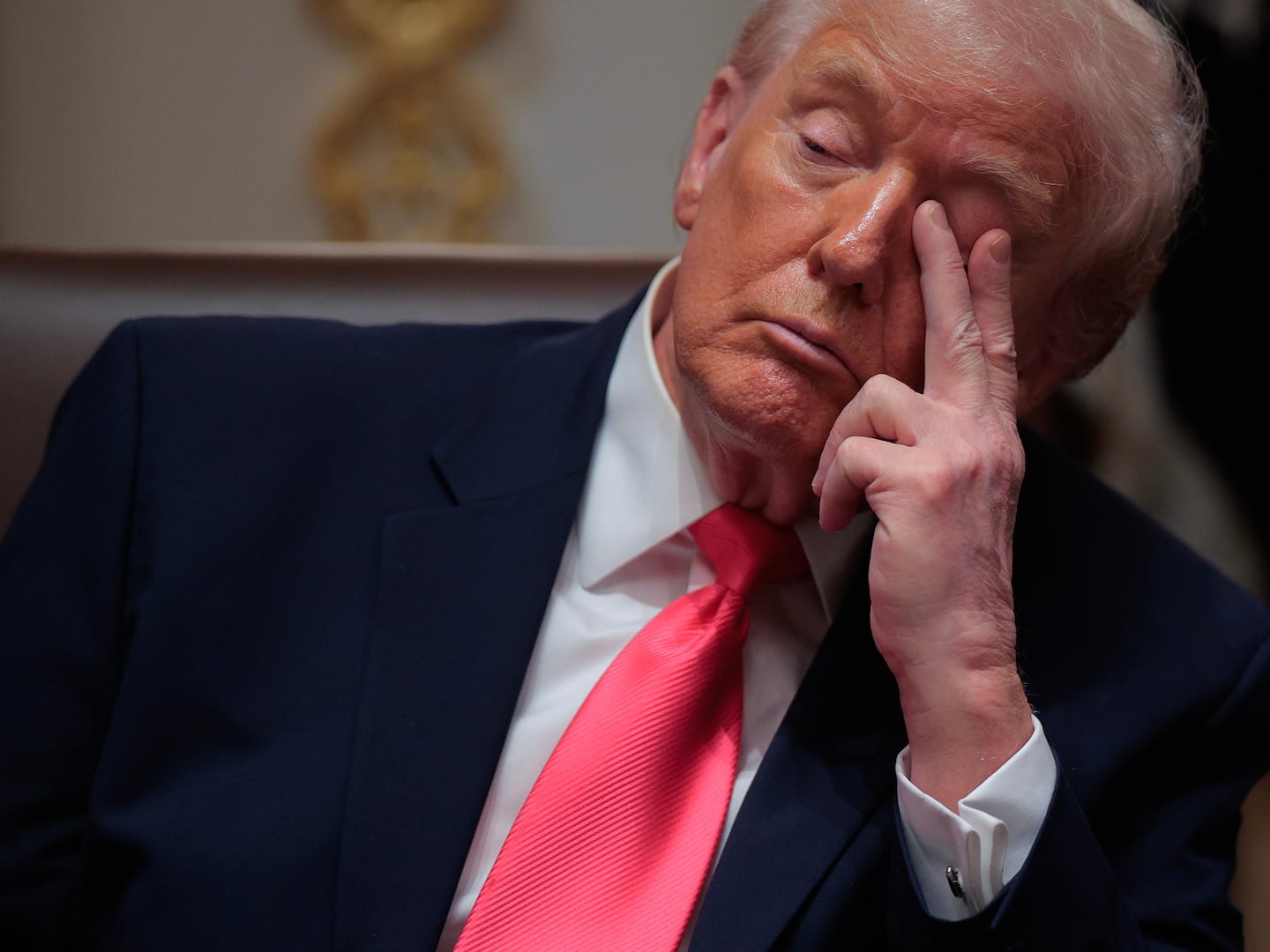The rift between Capitol Hill’s two top Republicans over Jan. 6 continues to widen, with one leader signaling openness toward leaving Donald Trump behind and pursuing accountability for the Capitol insurrection, and the other embracing the former president and his fact-free reality as tightly as ever.
On Tuesday, House Minority Leader Kevin McCarthy (R-CA) announced he would oppose legislation to create an independent, bipartisan commission to fully investigate the Capitol attack, even though the deal creating this commission was four months in the making and brokered by a House GOP committee leader.
But just a few hours later, Senate Minority Leader Mitch McConnell (R-KY) didn’t rule out supporting the commission, saying his conference would have to weigh the arguments and read the “fine print” of the deal. “We are undecided about the way forward at this point,” he said at a press conference.
That, of course, doesn’t mean McConnell will support the bill creating the panel that passes out of the House over McCarthy’s objections. It’s just that, as McConnell often does, he’s left himself political room to make that decision. He said Tuesday that he’s “pushing the pause button” and is “willing to listen” to arguments about “whether such a commission is needed.”
For months, it’s been clear that the GOP’s House and Senate leaders have diverged on Donald Trump, both on his role in fomenting Jan. 6 and on what his role should be in defining the GOP going forward. But the daylight between McConnell and McCarthy on the fate of a high-profile commission—one that figures to keep the insurrection front-and-center and possibly unearth damaging new information about the GOP’s de facto leader—could further fuel divisions in the party.
That’s not to say Senate Republicans are clamoring for a Jan. 6 commission. Many remain uneasy about the version of the probe that the House will vote on this week with the full backing of Speaker Nancy Pelosi (D-CA).
Some are flat-out opposed to broadening any inquiry beyond questions of security. Sen. James Lankford (R-OK) told The Daily Beast on Tuesday that “there are a lot of folks in the media that would love to be able to go examine and re-examine everything.” Lankford added that lawmakers should be “focused on what do we do to be able to provide security here at the Capitol.”
But McConnell’s group isn’t ready just yet to call it quits on the idea. “There's an openness to an investigation… like the 9/11 commission,” said Sen. John Cornyn (R-TX). “It’s not dead.”
On Wednesday, the bill to establish a Jan. 6 commission is expected to pass out of the Democrat-controlled House with at least some GOP support. It was, after all, partly written by Rep. John Katko (R-NY), the top Republican on the House Homeland Security Committee, before McCarthy came out in opposition to the bill. It’s just that, according to aides, McCarthy ultimately decided he’d rather not elevate potentially damning findings about Trump or GOP supporters.
“McCarthy knows a commission creates a conflict with Trump so he threw his ranking member under the bus,” a senior GOP aide told The Daily Beast Tuesday night, referring to Katko.
Katko reportedly used that phrase himself in a closed-door GOP conference meeting on Tuesday, sarcastically saying, “Thanks for not throwing me under the bus, Kevin.”
But McCarthy’s calculus is at least largely determined by his conference. House Republicans are still wary of crossing Trump in any way, and many GOP members remain uncomfortable talking about Jan. 6—though some are now propagating a complete fiction about the Capitol attack in service to Trump and his preferred narrative about the attack.
McCarthy has staked his leadership on Trump in a way McConnell hasn’t. He has slowly walked back his claim that the former president bore responsibility for violence on Jan. 6, and now touts Trump as a top partner in reclaiming the House majority.
But McCarthy has another complication unique to him: he could be called as a witness in any comprehensive probe of the attack. The minority leader spoke with Trump as the mob stormed the Capitol, and the president told him the insurrectionists were doing more for him than he was, according to Rep. Jaime Herrera Beutler (R-WA).
To that end, a high-profile commission—composed of five notable Democrats and five notable Republicans—doesn’t particularly serve many GOP interests. The commission, as it’s currently drawn up, would examine every facet of the Jan. 6 attack: the disinformation that fueled it, the security failures that allowed a pro-Trump mob to storm the Capitol, and the decision-making from military and law enforcement leaders during the delayed response. And it would issue a report by the year’s end.
In a hearing on Tuesday, Katko emotionally summed up the mission of the would-be commission as focused on a deadly day that continues to inspire sadness and outrage among lawmakers.
“More important than anything is, how the hell did this happen?” Katko asked. “How did we fail to act on the intelligence we know was there? How were we not ready at the Capitol, and why in God's name did we put these poor Capitol Hill officers in an unwinnable situation?"
A set of committees on both sides of the Capitol are already probing the Jan. 6 attack, but an independent commission, in the eyes of its proponents, is the best way to ensure the most comprehensive and credible possible review of what happened and why.
A number of Republicans support that idea, including some loyal soldiers for the party. And many more have at least not ruled out supporting it.
But there’s an array of objections from other Republicans, who say the commission’s jurisdiction is either too broad or too narrow, its timing either too delayed or too premature. Many Republicans have fallen back on a deflection tactic, saying a commission should investigate completely unrelated events, like the violence during last summer’s protests over racism and police violence. Others have said its jurisdiction is too open-ended. And many Republicans, according to a senior GOP aide, are concerned Democrats have the power to extend the timeline of the probe so that its report—along with its potentially damaging findings—might come out before the 2022 midterm elections.
Some senators have taken the position that key questions have already been answered or will be soon.
Sen. Roy Blunt (R-MO) told reporters on Tuesday that a commission would “actually slow down us doing the things we know we need to do.” Blunt, who is the top Republican on the Senate Rules Committee overseeing a nearly-complete probe on the attack, argued that post-Jan. 6 recommendations have been reached, like on steps to improve the Capitol’s physical security.
Other Republicans remain circumspect until they see what comes of the report currently being finished by bipartisan leaders from a set of House and Senate committees. A GOP senator involved with putting together the committee probe told The Daily Beast that the upcoming report—set to be released in coming weeks—will be comprehensive, based on four months of work and dozens of interviews with relevant officials.
There are indicators, however, that these arguments aren’t as strong as some Republicans wish. That includes the former president. On Tuesday night, Trump issued a statement clearly evincing concern, calling the commission a “Democrat trap” and saying “this discussion should be ended immediately.”
“Hopefully,” Trump said, “Mitch McConnell and Kevin McCarthy are listening!”
House GOP leadership went all-in on its opposition Tuesday afternoon, urging members to vote against the bill establishing the commission when just a week ago they were signaling it’d be a vote of conscience.
Such a notice may reflect concern from the top about the number of Republicans who could join Democrats in supporting the commission bill. Indeed, those Republicans who will vote to create it include not only Trump-critical lawmakers like Rep. Adam Kinzinger (R-IL), but loyal party soldiers who typically don’t rock the boat, like Rep. Chris Stewart (R-UT).
In the Senate, Sen. Mike Rounds (R-SD) said such a probe should clearly focus solely on Jan. 6, despite his colleagues’ protestations it should include anti-police protests. “We clearly had an insurrection on that particular day, and I don't want it to be swept under any rug,” Rounds told NBC News.
Ultimately, the talking point concern from the House GOP didn’t seem to make its way over to the Senate—which itself is a sign of how divergent each chamber’s Republicans are when it comes to Jan. 6 and Trump.
Sen. Marco Rubio (R-FL) said he hadn’t seen exactly why McCarthy was objecting, but he told The Daily Beast he was open to establishing an independent commission to probe Jan. 6.
But, ever the politician, the Florida senator also gave himself an out should the political dynamics change.
“To the extent that that can be done in a legitimate, good faith way, it would serve the country,” Rubio said of the commission. “If it becomes a committee where you have a partisan food fight and everyone's trying to use it to win the next election, I don't think it's going to happen.”






